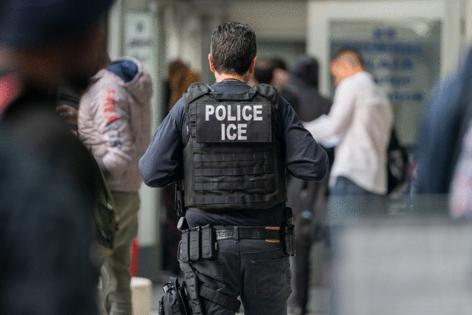Do sanctuary cities cooperate with ICE? What to know as Trump talks mass deportations
Published in News & Features
President Donald Trump’s appointed “border czar,” Tom Homan, has promised to conduct the “largest deportation operation in history” as Trump assumes his second term, ABC News reported, but leaders of some sanctuary cities have pushed back.
In general, the term “sanctuary city” describes jurisdictions that won’t share information or assist Immigration and Customs Enforcement with deportations, according to Global Refuge, but there is no clear definition.
With reports of deportation operations beginning as early as Jan. 21 in Chicago, leaders of sanctuary cities have shared mixed comments about their government’s compliance with Immigration and Customs Enforcement, NBC reported.
Chicago Mayor Brandon Johnson reaffirmed the city’s sanctuary status, saying, “Chicago stands strong: regardless of the circumstances, our commitment to protecting and supporting this city remains unwavering. We will continue to fight for the justice and safety of all who call this place home, “in a Jan. 19 post on X, formerly known as Twitter.
In contrast, Philadelphia District Attorney Larry Krasner did not directly say if the local government would comply with ICE, NBC News reported.
“Sanctuary city can mean a lot of things, and so that whole discussion can get confusing and maybe generate more heat than light,” he told NBC News.
Here’s how the term “sanctuary city” differs when it comes to compliance with ICE.
What is a sanctuary city and where are they located?
Though the Center for Immigration Studies has created a comprehensive list of “sanctuary jurisdictions,” across the country, that does not mean state and local governments refuse to allow ICE into these jurisdictions.
“Sanctuary policies are about preserving local resources for local priorities, rather than volunteering assistance in immigrant enforcement,” according to a 2016 report by the Illegal Immigrant Resource Center.
Often, this means local law enforcement agencies in sanctuary jurisdictions will not arrest or keep people solely for an immigration detainer, according to Global Refuge.
An immigration detainer, according to ICE, is a request that asks local law enforcement agencies to hold a noncitizen until a federal official can take custody of them.
Illinois and Oregon are the only states with comprehensive sanctuary laws, though there are notable cities across the country that have been seen as a haven for migrants looking to avoid deportation.
“Oregon sanctuary laws restrict state and local government, including law enforcement, from helping to enforce federal immigration laws without an order signed by a judge. Federal immigration agencies can still conduct business in Oregon; the laws restrict state and local funds, facilities, equipment, and personnel from assisting in these efforts, without an order signed by a judge,” according to the state’s Department of Justice.
In Illinois, the TRUST Act prevents local officials from partnering with ICE, among increasing other protections for other immigrant communities, according to a 2021 news release from Illinois Gov. JB Pritzker.
Chicago, Washington, D.C., New York City, Philadelphia, Denver and Los Angles were pinpointed as sanctuary cities when thousands of migrants were bused from Texas to these locations from 2022 to 2024.
Some law enforcement agencies, jails and detention centers refuse to hold people solely for a civil immigration detainer, according to ICE.
ICE identified hundreds of institutions, consisting of jails and law enforcement agencies, that do not accept immigration detainers, according to a June 2024 memo. The 697 institutions do not hold undocumented immigrants so ICE can take them into custody, the report said.
These institutions are located in Chicago, Denver, Detroit, Los Angeles, New Orleans, New York City, Philadelphia, Salt Lake City, San Diego, San Francisco, Seattle, Washington, D.C., Atlanta, Baltimore, Boston, St. Paul, Minnesota, and El Paso, New Mexico, ICE said.
Some of the institutions will notify ICE before releasing a person in custody, but they will not hold them until federal officials arrive to detain them, the report said. Others will not notify ICE before releasing an undocumented person in custody.
Chicago police have said they will not assist immigration authorities, but officers will also not “assist or intervene in civil immigration enforcement,” the department said in a statement to WLS.
----------
©2025 The Charlotte Observer. Visit at charlotteobserver.com. Distributed by Tribune Content Agency, LLC.







Comments